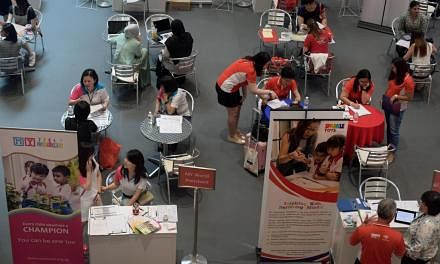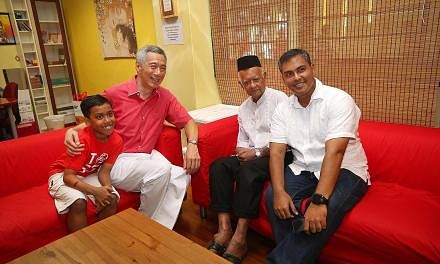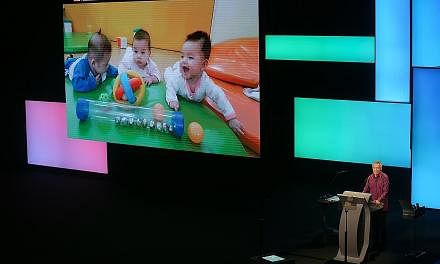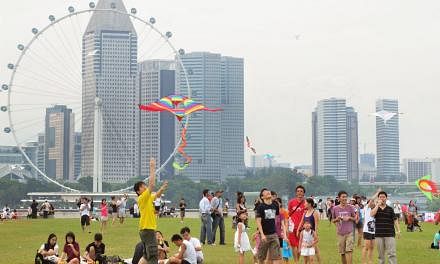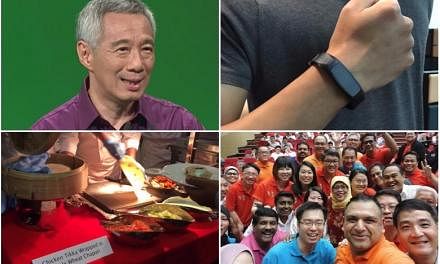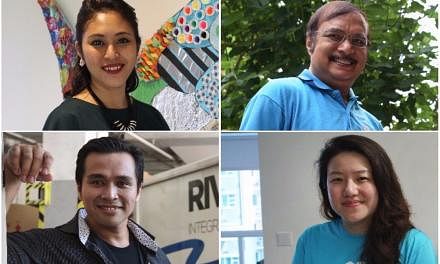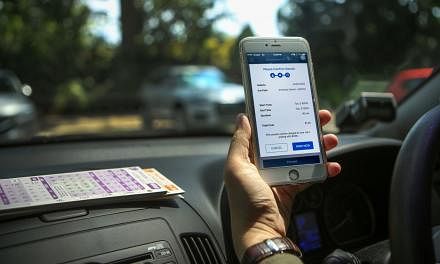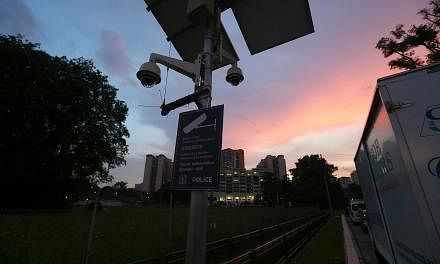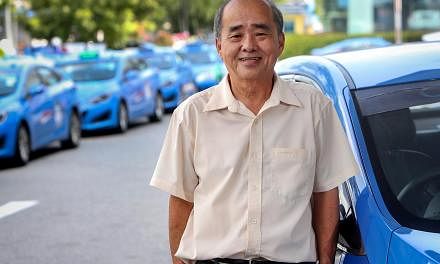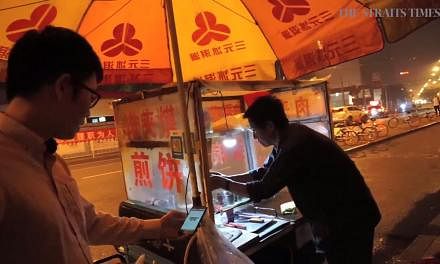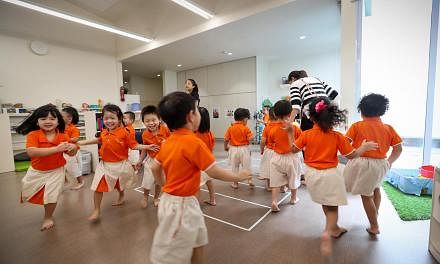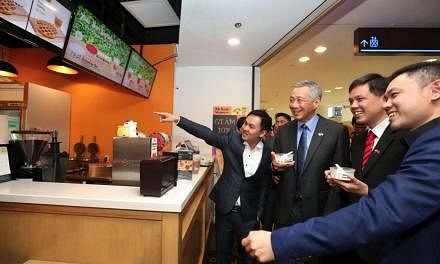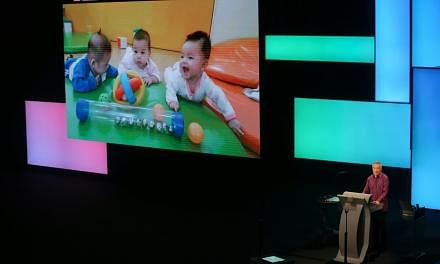SINGAPORE - This year's National Day Rally had a strong focus on social and personal issues, rather than more traditional economic and geopolitical affairs, said observers and MPs on Sunday (Aug 20).
But they pointed out that improving pre-schools, promoting healthy living and adopting more technology are issues which are typically overlooked, and welcomed how Prime Minister Lee Hsien Loong trained the national spotlight on them.
Some also pointed out the limitations of the national campaigns, and hoped that low-income and elderly Singaporeans would not be left out.
'Softer' issues, but no less important
Observers noted the very different tack PM Lee took this year in addressing pre-schools, diabetes and the Smart Nation push in Malay, Mandarin and English.
In previous years, he had focused on security issues like terrorism, international relations with China and the United States, and the elected presidency.
Said Singapore Management University law don Eugene Tan: "It was very much a back-to-basics NDR speech with a different tack altogether that some may find surprising or even underwhelming for such a platform. The approach spotlights three topics that are often taken for granted or given inadequate attention.
"It was very relatable to the man on the street even if some preferred the 'traditional' approach of weighty affairs of state," added Associate Professor Tan, a former Nominated MP.
Similarly, Iseas-Yusof Ishak research fellow Mustafa Izzuddin said: "These are not the traditional type of concerns, and don't get quite as much attention as hard issues. But they are just as important."
He also welcomed the absence of political issues such as the elected presidency in the speech, as their presence would distract Singaporeans from PM Lee's three key messages.
Training the spotlight on lowkey issues
MPs said that diabetes, in particular, is a ticking time bomb which not many Singaporeans are aware of.
Said Tanjong Pagar GRC MP Joan Pereira: "Many are not aware of the urgency of our diabetes problem, and hence, discussing it during NDR is one of the best ways as it is a platform that has the nation's attention, to get everyone aware, sit up and watch their health."
Mr Jonathan Leong, 29, a marketing communications manager who was at the rally, said the rally was a "wake-up call" for him.
"I'm guilty of eating unhealthy food," he said, noting that now he would change his lifestyle habits and start using the fitness tracker that was given out at the rally. "Even if we're under 40, this healthy lifestyle is something we should start now."
Many also underestimate the impact quality pre-schools on a child's development, said Chua Chu Kang GRC MP Zaqy Mohamad, adding that low-income families tend to see pre-school as optional.
The Government's moves to improve the quality of pre-schools and make it more affordable could encourage more low-income families to send their children to pre-school, and thus close the gap between the haves and the have-nots, he said.
PM Lee also said that Singapore was behind many countries in its push to adopt more technology, like cashless payments.
It was a good wake-up call, said Mr Zaqy, adding:"We may have gotten a bit complacent over the years. Yes, we do well in global rankings, but many emerging markets including China has come up quickly on the technology front.
Likewise, Minister for Communications and Information Yaacob Ibrahim said: "These are long term issues for all Singaporeans to be concerned about, and I'm glad that he spent a lot of time to dig deep into these issues and see what we can do about them as ordinary Singaporeans."
Leaving no one behind
Ms Pereira said the Smart Nation push needs to involve seniors and leave no one behind.
Others also said that extra effort would have to be made to include low-income Singaporeans in the push towards healthier living.
Former Nominated MP Calvin Cheng said on Facebook that eating healthy is often not a choice for low-income people,as healthier options are usually more expensive.
Brown rice is more expensive than white rice, and wholemeal bread is more expensive than white bread, he noted. And while hawker food is often oily and unhealthy, it is affordable, he added.
Even exercise is harder for those who earn less, he wrote.
"If one has to rely on public transport, or have to work two jobs to put food on the table, time is a luxury. Gym memberships, even at community centres, cost money. When one is dog-tired from work, one does not want to take the stairs nor walk 10,000 steps," said Mr Cheng referring to the prescribed number of daily steps to stay fit.
"Sometimes we have to understand that poverty limits choices. Many policies by design have to target the median, but we must never forget those at the tail-end of the curve that does not have the freedom to make many decisions that can improve their lives," he added.

